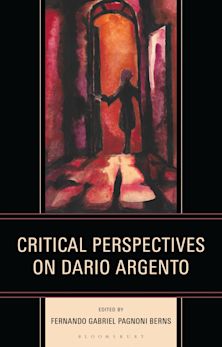- Home
- ACADEMIC
- Film & Media
- European Cinema
- European Cinema and Continental Philosophy
European Cinema and Continental Philosophy
Film As Thought Experiment
European Cinema and Continental Philosophy
Film As Thought Experiment
You must sign in to add this item to your wishlist. Please sign in or create an account
Description
Winner of the Limina Award 2021
This groundbreaking volume for the Thinking Cinema series focuses on the extent to which contemporary cinema contributes to political and philosophical thinking about the future of Europe's core Enlightenment values. In light of the challenges of globalization, multi-cultural communities and post-nation state democracy, the book interrogates the borders of ethics and politics and roots itself in debates about post-secular, post-Enlightenment philosophy.
By defining a cinema that knows that it is no longer a competitor to Hollywood (i.e. the classic self-other construction), Elsaesser also thinks past the kind of self-exoticism or auto-ethnography that is the perpetual temptation of such a co-produced, multi-platform 'national cinema as world cinema'. Discussing key filmmakers and philosophers, like: Claire Denis and Jean-Luc Nancy; Aki Kaurismäki, abjection and Julia Kristeva; Michael Haneke, the paradoxes of Christianity and Slavoj Zizek; Fatih Akin, Alain Badiou and Jacques Rancière, Elsaesser is able to approach European cinema and assesses its key questions within a global context. His combination of political and philosophical thinking will surely ground the debate in film philosophy for years to come.
Table of Contents
Chapter 1: European Cinema into the 21st Century: Enlarging the Context?
Chapter 2: Film as Thought: The 'Film and Philosophy' Debate
Chapter 3: Film as Thought Experiment
Chapter 4: “Europe” – A Thought Experiment
Chapter 5: A Cinema of Abjection?
Chapter 6: Post-heroic Narratives and the Community-to-Come
Chapter 7: Claire Denis, Jean-Luc Nancy and Beau Travail
Chapter 8: Hitting Bottom: Aki Kaurismäki and the Abject Subject: The Man Without A Past
Chapter 9: “Experimenting with Death in Life” Fatih Akin and the Ethical Turn
Chapter 10: Black Suns and a Bright Planet: Lars von Trier's Melancholia as Thought Experiment
Chapter 11: Anatomy Lesson of A Vanished Country: Christian Petzold's Barbara
Chapter 12: Control, Creative Constraints and Self Contradiction: The Global Auteur
Bibliography
Filmography
Index
Product details

| Published | 29 Nov 2018 |
|---|---|
| Format | Ebook (PDF) |
| Edition | 1st |
| Extent | 352 |
| ISBN | 9781441110657 |
| Imprint | Bloomsbury Academic |
| Series | Thinking Cinema |
| Publisher | Bloomsbury Publishing |
About the contributors
Reviews
-
Accessible and rigorous, brimming with indispensable insights for students, scholars, and readers of film studies, continental philosophy, visual culture, and media theory ... It is a rare pleasure to read a work of film-philosophy that so carefully balances textual hermeneutics and political deconstructions.
Alphaville: Journal of Film and Screen Media
-
Constitutes an interdisciplinary epistemological and philosophical map, a challenging and precious tool to register, draw and address the complex socio-political dynamics of our time with a critical and experimental spirit ... [An] essential text (a must read for these dangerous times).
New Review of Film and Television Studies
-
Not only a rich exploration of the relationship between film and philosophy, European Cinema and Continental Philosophy makes a timely claim on the stakes of thinking Europe today. Elsaesser provides a new and urgently needed framework for grappling with the contemporary conditions of European politics and film culture.
Rosalind Galt, Professor of Film Studies, King's College London, UK
-
Elsaesser argues for a contemporary European cinema of openness and multiplicity, for a cinema that foregrounds autonomy and liberation. These arguments are backed up by an impressive account of contemporary European philosophy and its influences on cinematic thought. Elsaesser develops the key notions of a 'cinema of abjection' and 'post-heroic narratives' and, as a result, he charts an impressive map of European cinema and a European politics to come.
Richard Rushton, Senior Lecturer in Film Studies, Lancaster University, UK
-
European Cinema and Continental Philosophy offers an important and deeply engaging reappraisal of the status of European cinema at a moment of apparent crisis. There is both defiance and brilliance in the way that Elsaesser, situating cinema in its wider philosophical, political, social, and cultural contexts, seizes upon its perceived marginality and irrelevance as the key to its strength, and presents the widespread “abjection” he identifies, as evidence of creative freedom and the embodiment of Europe's core Enlightenment values. This volume combines daring originality with the impressive scholarship we have come to expect from Thomas Elsaesser. It is a work of major significance which will have a profound impact upon contemporary and future film studies.
Wendy Everett, Professor Emeritus, University of Bath, UK

ONLINE RESOURCES
Bloomsbury Collections
This book is available on Bloomsbury Collections where your library has access.


































